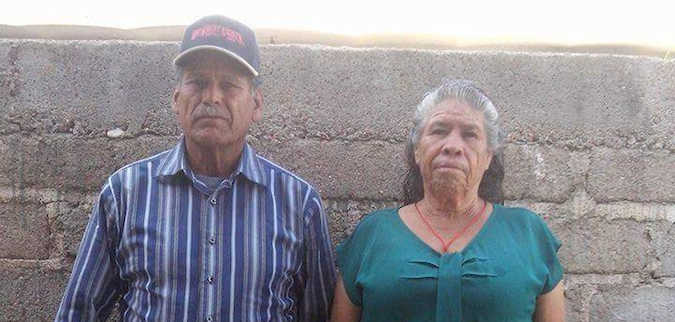RENO, Nev. — The federal government does not have to explain to a Nevada man why his mother — a grandmother and farmer in Mexico — has been denied entry to the U.S. for more than 20 years under “alien smuggling” rules, a federal judge has ruled.
A lawyer for Reno landscaper Jose Isabel Esparza-Munoz, 69, had been arguing in court since November about whether immigration officials must do more than simply cite the section of law pertaining to smuggling. U.S. immigration officials have been blocking 65-year-old María Esparza’s entrance to the country since she first acknowledged in 1994 that a son listed on her original visa application was really her grandson born to her teenage daughter.
U.S. District Judge Robert Jones said in dismissing the case Thursday none of that matters because Esparza-Munoz didn’t become a naturalized U.S. citizen until after the visa was denied.

“Because the spousal visa denial occurred when plaintiff was not a citizen, no violation of the due process clause can have resulted from the denial, because only citizen spouse have any cognizable liberty interest in the context of spousal visa applications,” the judge wrote in a 3-page opinion.
The government never raised that issue in its briefs. But Jones concluded that if such rights are to be “extended to those who were not citizens but only resident aliens when their spouse’s visa application was denied, it must be done by the court of appeals, not by this court.”
Jones has been in the spotlight recently because the 9th Circuit reversed a number of his decisions and earlier this month took the extraordinary step of ordering him off a case as part of the remand to district court — the fifth time that has happened in just the past two years.
Reno lawyer Steve Brazelton told The Associated Press on Friday they are considering an appeal to the 9th Circuit in San Francisco but had no additional comment.
Chloe Dybdahl, a U.S. State Department lawyer, said in a declaration filed last month that the boy María Esparza presented as her child in 1994 “was really her grandchild and had no possible legal eligibility for an immigrant visa.” Dybdahl acknowledged that Esparza later obtained a waiver from U.S. Immigration Services that made her eligible for one exception to the prohibition, but no such exception is allowed under the section of law regarding alien smuggling.
Brazelton said the woman living on a modest family farm outside Mexico City bears no resemblance to a smuggler, defined under the law as someone who imports or exports “secretly contrary to law,” or with “fraudulent intent.” He cited a long list of previous federal circuit court rulings on appeals decisions interpreting the smuggler statute.
None of the cases involve a misrepresentation made on a visa application or at a visa review.”
-Steve Brazelton. Attorney of Jose and María Esparza-Munoz
“Each of the cases involves a border inspection station or airport inspection station entry or attempted entry,” he wrote in court documents last month. “None of the cases involve a misrepresentation made on a visa application or at a visa review.”
María Esparza’s initial application was accompanied by an official birth certificate listing her and her husband as the parents of Yazarit Esparza, now 22.
Brazelton said it was obvious to the couple at the time that their daughter was unprepared to be a mother and that the biological father “shirked all responsibility.”
“The baby was born at home and so Mr. Esparza and his wife took the baby and registered the baby as their own child,” he wrote. “Thereafter, they treated and represented the child as their own for all purposes, including the visa application at issue. They answered all questions truthfully at their visa interview, including acknowledging that Yazarit was their biological grandchild rather than child.”










